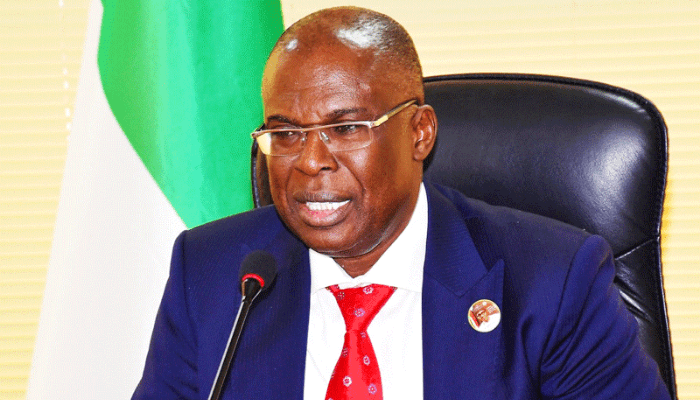An arrest warrant issued by Nigeria’s anti-corruption agency, the Economic and Financial Crimes Commission (EFCC), for former Petroleum Minister Timipre Sylva has been described as politically motivated by his spokesperson. The move comes amid allegations that Sylva, along with others, diverted approximately $15 million (£11 million) of public funds earmarked for the construction of an oil refinery.
The EFCC published a “wanted notice” on social media, appealing to the public to provide information on Sylva’s whereabouts. The agency’s announcement has drawn significant attention and sparked debate about due process and political undertones in high-profile corruption investigations in Nigeria.
In response, Julius Bokoru, Sylva’s spokesperson, stated that the former minister is currently in the United Kingdom for a medical check-up and intends to cooperate with the EFCC upon his return. He emphasized that the refinery project in question was fully legitimate, transparent, and documented, with traceable financial records.
“The refinery project in question is a legitimate, transparent, and verifiable undertaking,” Bokoru said, asserting that the issuance of a public “wanted” notice via social media was intended to inflame public sentiment rather than follow proper investigative protocol. He questioned why the EFCC did not first contact Sylva directly before escalating the matter publicly.
According to the EFCC, its notice follows a High Court warrant issued in Lagos last Thursday, underlining the agency’s legal authority in the investigation. The case centers on allegations of misappropriation of funds intended to advance Nigeria’s oil infrastructure, specifically the construction of a strategic oil refinery in the southern Niger Delta region.
Sylva has had a long career in Nigerian politics. He served as Petroleum Minister from 2019 to 2023 under the administration of the late former President Muhammadu Buhari. Prior to that, he was the Governor of Bayelsa State, an oil-rich region in southern Nigeria, from 2007 to 2012. His tenure in both positions has been marked by involvement in key oil sector initiatives, though the EFCC’s allegations place a spotlight on financial management and accountability during his ministerial role.
The EFCC’s action has reignited conversations about political influence, transparency, and corruption investigations in Nigeria. Analysts and political observers have questioned whether high-profile corruption probes are being selectively applied and whether social media notices contribute to public bias before due legal process.
Sylva’s legal team maintains that the former minister is ready to cooperate fully with the authorities and will address any inquiries in a lawful and transparent manner once he returns to Nigeria. Meanwhile, the EFCC continues to assert its mandate to pursue alleged mismanagement of public funds and to hold accountable those involved in diverting critical resources intended for national development projects.
The case will likely continue to attract national attention, highlighting tensions between political leadership, anti-corruption agencies, and public perception in Nigeria’s ongoing battle against financial crime.













Leave a comment